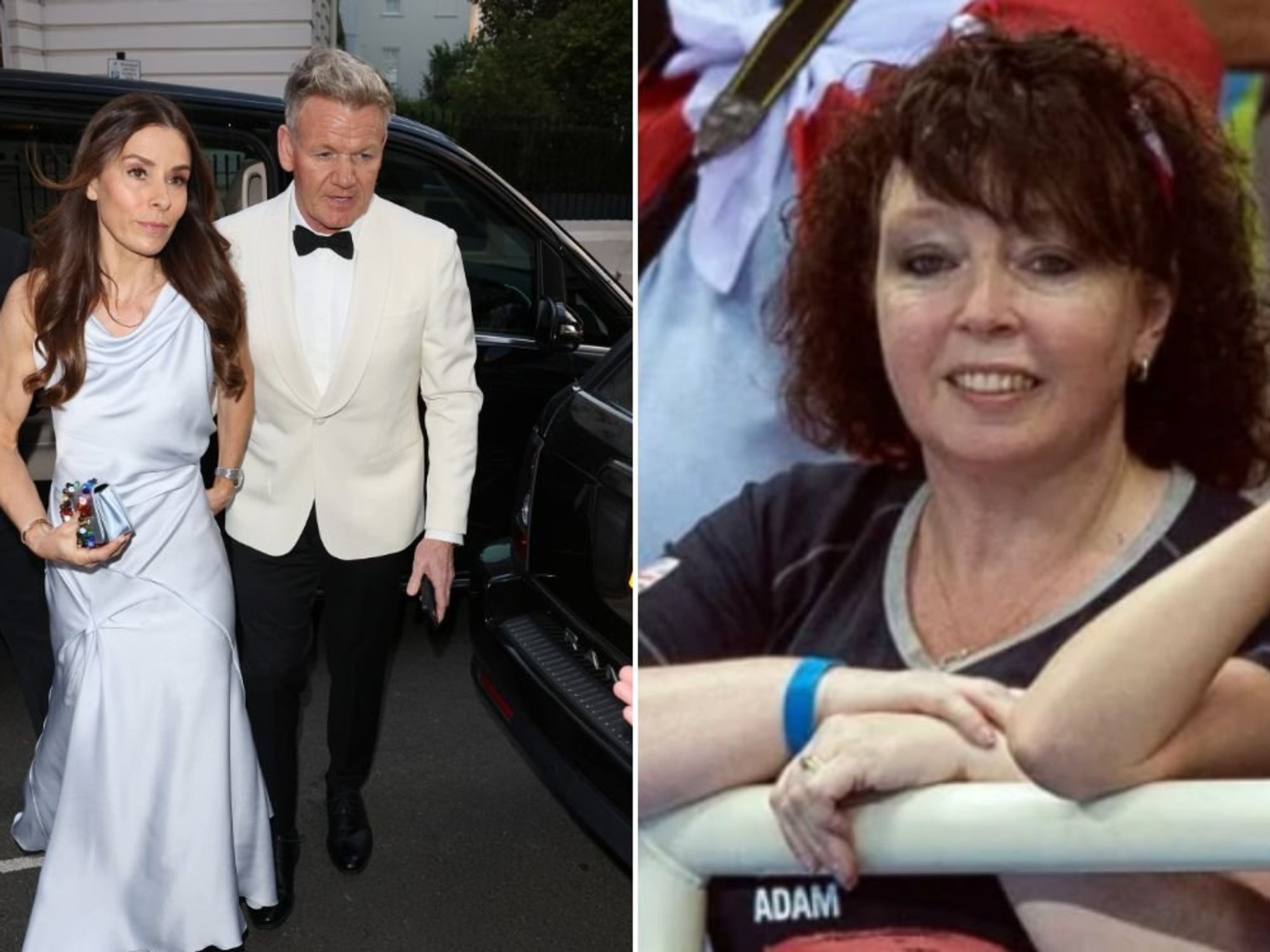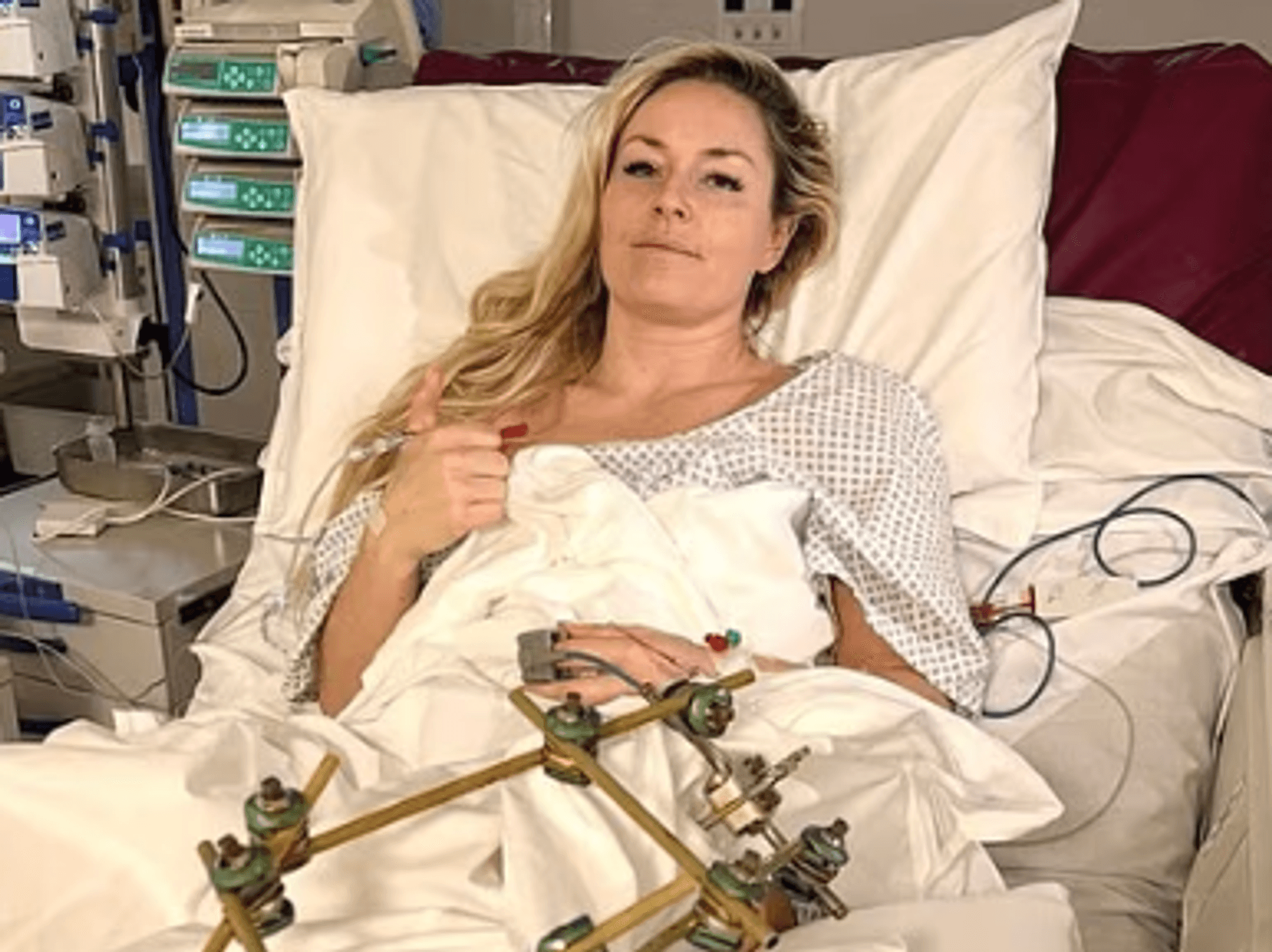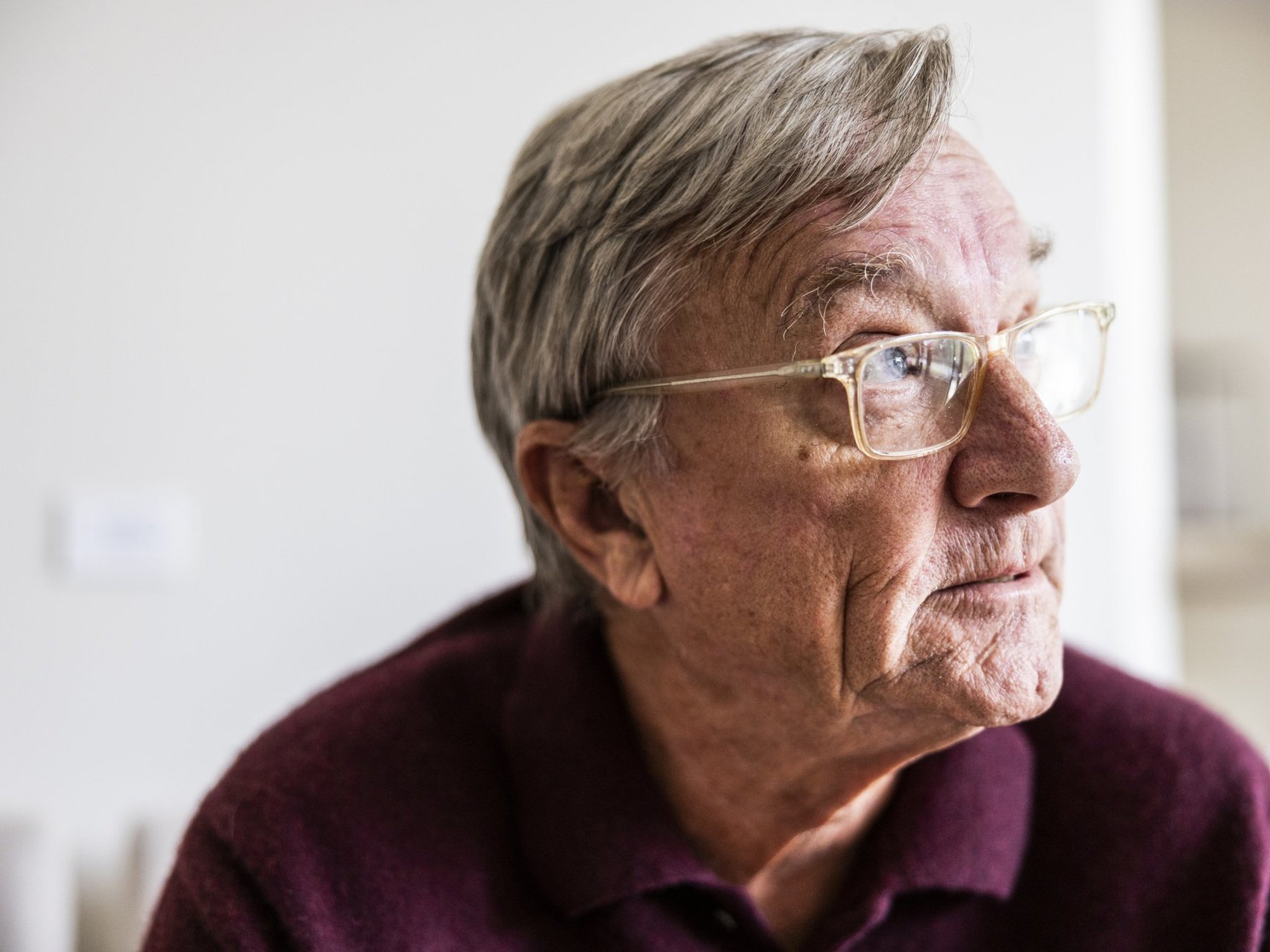GB News guest bursts into tears and says 'my heart is breaking' after historic Assisted Dying Bill vote
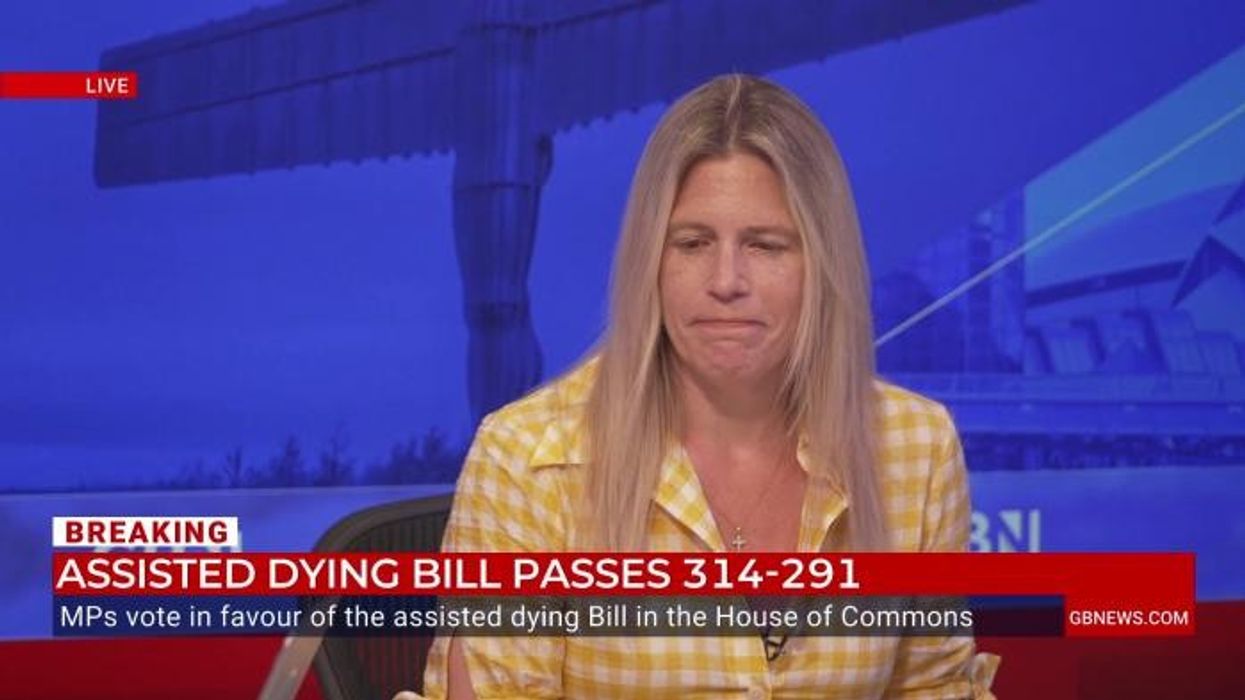
GB NEWS

The bill passed the House of Commons stage by a slim margin and will now face Lords scrutiny
Don't Miss
Most Read
Trending on GB News
Watch as Catholic journalist and commentator Caroline Farrow bursts into tears live on GB News as she admits MPs backing the Assisted Dying Bill had her despairing.
Reacting on the People’s Channel, Farrow expressed concern at how such a measure will be implemented and its vulnerability to exploitation.
Host Martin Daubney offered Farrow tissues to wipe her tears as she passionately made her point on the emotionally charged subject.
“It’s not a vote for dignity, it’s a vote for despair”, she said.
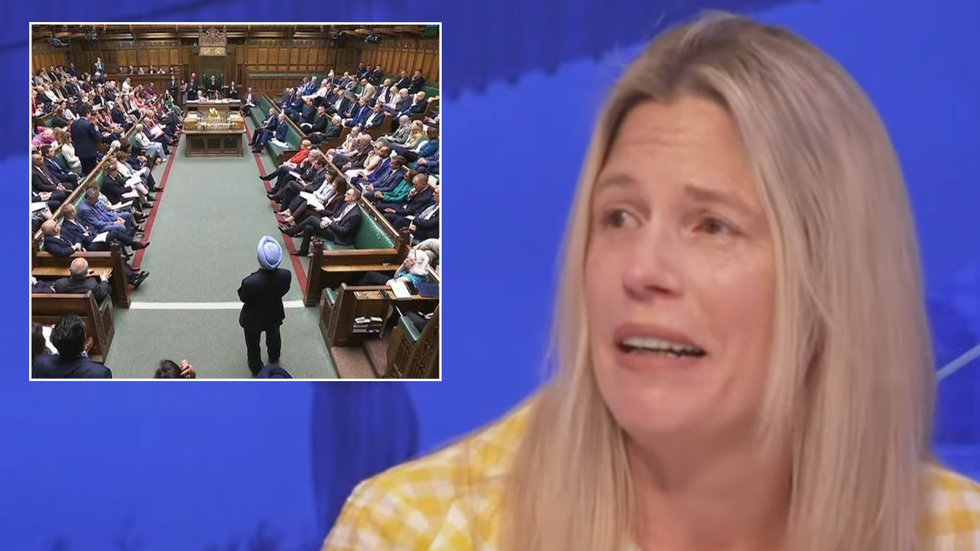
Caroline Farrow was dismayed after watching MPs vote in favour of the Assisted Dying Bill
|GB NEWS / PARLIAMENT
“I don’t normally get upset but I think this is so shocking. One of the things that struck me is, you’re talking about doctors needing to be trained.
“Trained for what? Trained to kill people. We’re living in a country with a socialised healthcare and a private decision will affect a lot of other people.
LATEST DEVELOPMENTS
- Assisted Dying Bill narrowly passes through Commons as UK one step closer to proposal becoming law
- Assisted Dying Bill: Lisa Nandy urges MPs to back legislation to allow end of life 'dignity'
- WATCH: Assisted dying campaigner tells GB News that current legislation is 'totally wrong'
“One of the rejected amendments was, if someone is being pressured or coerced or fears being a burden, they will not be allowed this, but it was voted down.
“We know choices are rarely made objectively. This changes the nature of doctors and changes the role of the NHS. It provides a charter for the NHS to be changed at will by any future Government.
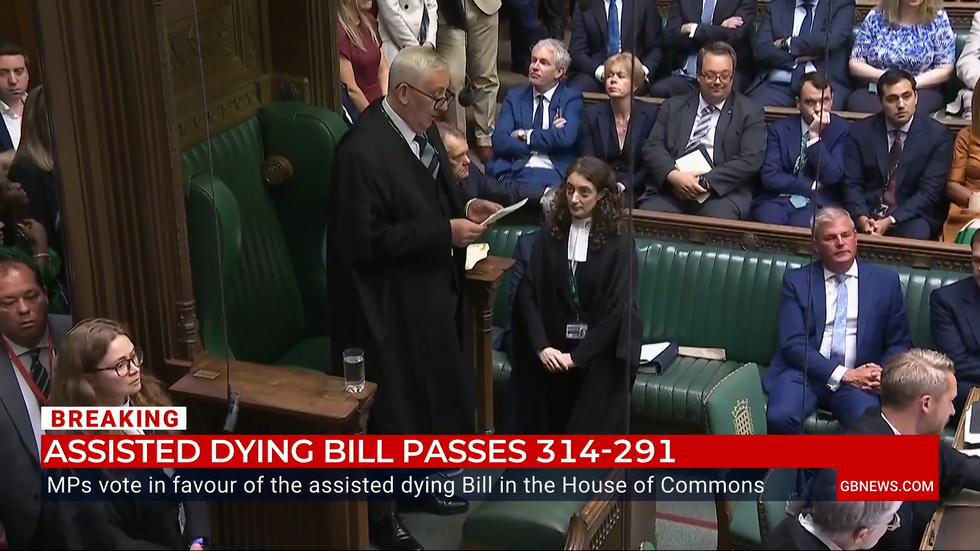
MPs voted 314-291 in favour of the bill
|GB NEWS
“The NHS can now kill us. We don’t know what drugs will be used or what methods. We know of some terrible cases where some people take drugs and die 72-hours later.
“I have a very good, personal friend whose sister chose a death in Canada and said there was absolutely nothing dignified about it.
“The reaction of the disabled campaigners outside Parliament today… It’s like a dark cloud has descended.”
MPs voted 314 to 291 to approve the Terminally Ill Adults (End of Life) Bill at its third reading in the House of Commons.
It marked a watershed moment for end-of-life choice in England and Wales.
The historic vote, which saw a majority of 23, means the bill will now proceed to the House of Lords for further scrutiny.
Labour MP Kim Leadbeater, who proposed the legislation, was seen crying in the chamber as it passed.
The bill would allow terminally ill adults with fewer than six months to live to apply for an assisted death, subject to approval by two doctors and a panel featuring a social worker, senior legal figure and psychiatrist.
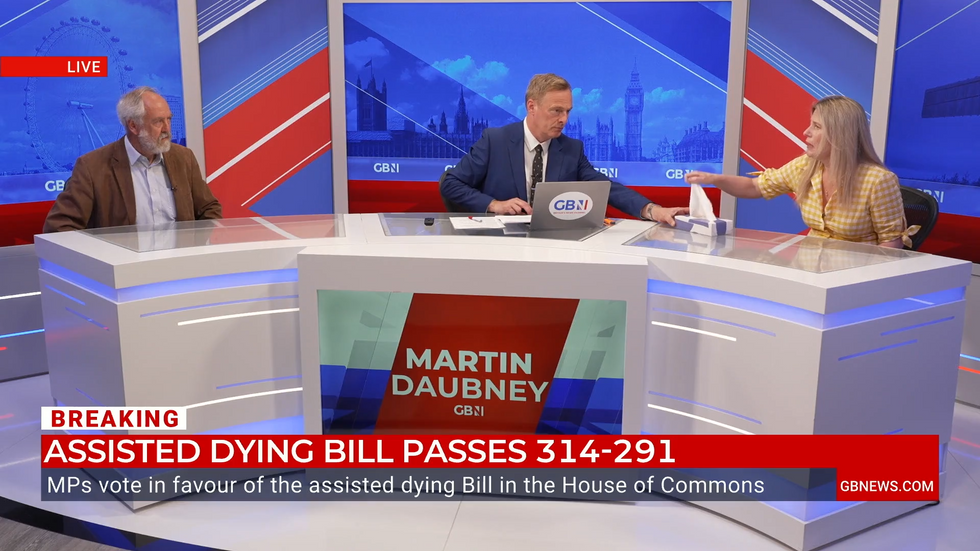
Martin Daubney handed Farrow a tissue
|GB NEWS
This represents the first successful Commons vote on assisted dying since the issue was last debated in 2015, when it was defeated by 330 votes to 118.
Opening Friday's debate, Leadbeater said that opposing the bill "is not a neutral act. It is a vote for the status quo".
WATCH THE MOMENT: VIDEO: Assisted Dying Bill passes in the House of Commons
She warned that if her plan was rejected, MPs would be asked to vote on it again in 10 years time and "that fills me with despair".
"Giving dying people choice about how they die is about compassion, control, dignity, and bodily autonomy. Surely we should all have the right," she told the Commons.
The bill includes significant safeguards, with terminally ill adults needing to self-administer the life-ending medication.
Since November's second reading, which passed with a bigger majority of 55, the legislation has undergone changes including replacing High Court Judge approval with an expert panel assessment.
Former Tory minister Sir James Cleverly, leading the opposition in the Commons, shared about a friend who endured a "painfully" death from cancer.
He clarified his approach to the contentious matter, stating he approaches it "not from a position of faith nor from a position of ignorance", but is motivated by "concerns about the practicalities" of the legislation.
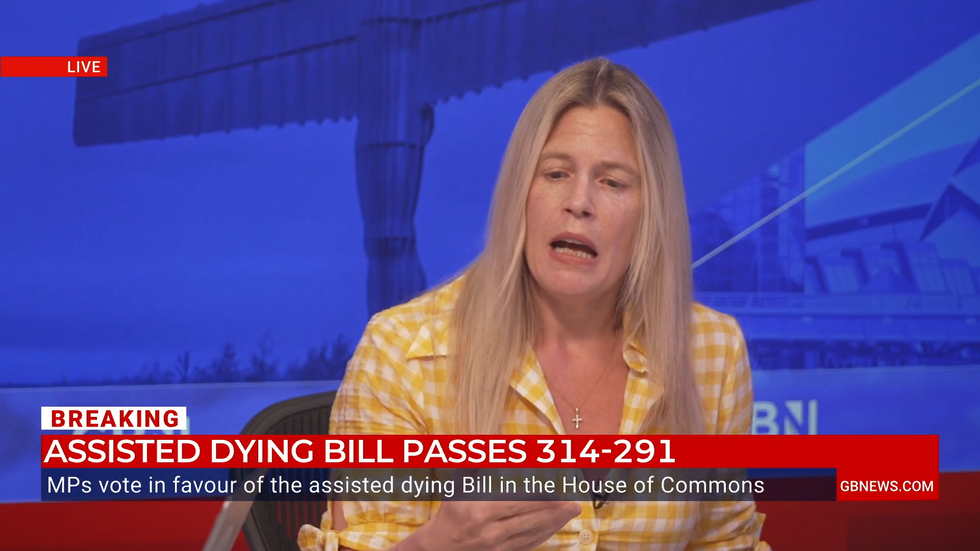
Farrow was devastated
|GB NEWS
Labour MP Vicky Foxcroft raised concerns that the bill lacked sufficient safeguards to protect disabled individuals.
"We have to protect those people who are susceptible to coercion, who already feel like society doesn't value them, who often feel like a burden to the state, society and their family," she said.
The Royal College of Psychiatrists, the Royal College of Pathologists and the Royal College of Physicians all raised concerns ahead of the vote.
Campaign group Dignity in Dying hailed the result as "a landmark moment for choice, compassion and dignity at the end of life".
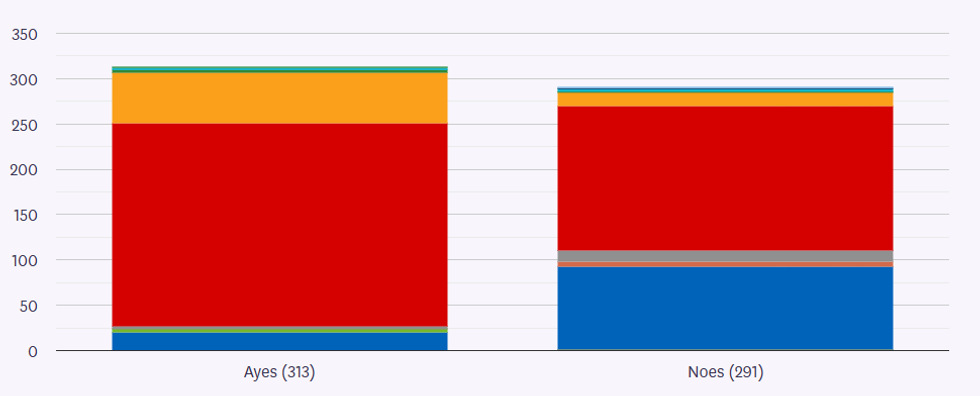 Keir Starmer, Rachel Reeves and Yvette Cooper vote for Assisted Dying Bill
Keir Starmer, Rachel Reeves and Yvette Cooper vote for Assisted Dying Bill"MPs have listened to dying people, to bereaved families and to the public, and have voted decisively for the reform that our country needs and deserves," said Sarah Wootton, its chief executive.
A YouGov poll of 2,003 adults conducted last month found that 73 per cent of respondents supported the introduction of an assisted dying law.
Outside Parliament, hundreds of Dignity in Dying campaigners gathered to celebrate, whilst opponents at a nearby counter-protest voiced concerns about vulnerable individuals being pressured.
The legislation would bring Britain in line with several European countries including Belgium and the Netherlands that have already legalised some form of assisted dying.
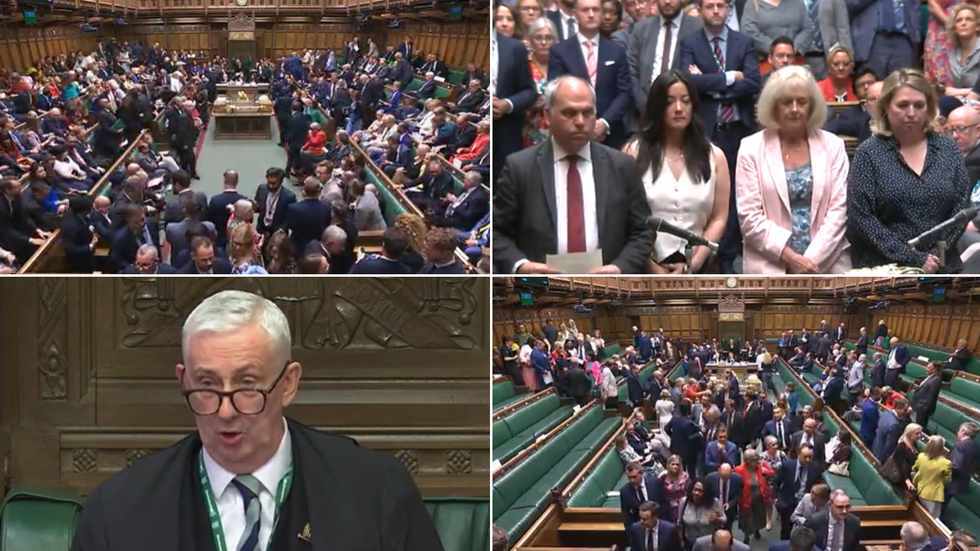 IN PICTURES: Assisted Dying Bill passes Commons | PARLIAMENTLIVE.TV
IN PICTURES: Assisted Dying Bill passes Commons | PARLIAMENTLIVE.TVCurrently, encouraging or assisting suicide is illegal in England and Wales, carrying a maximum prison sentence of 14 years.
Given the four-year implementation period, assisted dying services could become available by 2029, potentially coinciding with the end of this Government's Parliament.
Both Houses must agree on the final text before it can receive royal assent and become law.
A government impact assessment estimates between 160 and 640 assisted deaths could occur in the first year, potentially rising to 4,500 annually within a decade.
The Isle of Man became the first British territory to pass an assisted dying bill in March, whilst a separate bill is progressing through the devolved Scottish Parliament.






